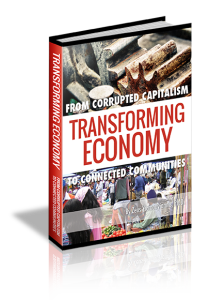A light went off in my head when I listened to this phrase from Neil DeGrasse Tyson’s show on StarTalk on “The Science of Storytelling”– “the only way to beat a bad story is with a better story”. Research shows that stories involve the entire brain, and false stories will trump even the most carefully constructed set of facts (which only affect a part of the brain). This question then emerges for the purposes of political psychology: What will be the new story and who will be the new storytellers? Newly elected representative Alexandra Ocasio-Cortez is certainly making her case, and it would be interesting to study why she gets so much press and reaction from a political psychological standpoint.
(You can find the full episode and program description of the StarTalk episode here: https://www.youtube.com/watch?v=i4Dypt7vhjc and https://www.startalkradio.net/tonight-investigate-the-power-of-storytelling-with-neil-degrasse-tyson-and-salman-rushdie/)
Donald Trump is story teller. I am from Ohio and I have quite a few high school classmates who are Trump supporters (or at least were). What I find is that they are looking for a redemptive story, but also to have their pain addressed. Just as with binge-eating unhealthy foods, if someone shoves self-righteous anger in front of your face (against a system that seems unfair, even if it uses the powerless as punching bags), you’re bound to take it, and if that person’s opponent calls you “deplorables”… well, we get what we have. The cheap, mean, and false emotion-high “you’re going to get tired of winning” story triumphs over the condemning emotion-low “you are a deplorable” story.
I use my Facebook page to do informal research on political psychology, floating certain posts and memes. I grew up in a semi-rural area in Ohio, and many of my high school classmates are in the Trump red-meat center. I found two things that they fear and will not acknowledge. (I know this because I do not get pushback when I offer these two points on my postings, whereas I do with others.)
1) The first: Trump fans are beginning to know that Trump is part of the system he criticized and that he is not going to deliver on real change. I get responses that no longer support him, but say things like, “Well, he’s the president and you have to go along with him” or “he’s the best we’ve got” but none that say, “he’s doing a great job, and he speaks for me.” I get the sense that they are personally embarrassed by his clownishness (possibly touching on their own insecurities). He really is an elitist that does not care for them and cannot deliver, but I suspect that former supporters cannot fit these facts into their story of themselves and their psychological frame. Therefore, this shame-inducing thought must be diverted. As research and example show, very few conned people will file a police report, because the blow to self-esteem by open admission that one is a dupe has too great a psychological cost.
2) The second point, I find, is that these same supporters are beginning to discover they’ve been conned and do not want to admit that fact to themselves. When I bring up the notion that these “red meat” Americans are being screwed (and detail how they are being screwed) by people pretending to be their friends but who are using them and whose values are exactly opposite theirs, I get no pushback or response at all. In fact the silence is deafening, so I know my post is hitting a core dread.
In my “Motivation and Emotion” psychology class, I encourage my students to experiment with real world psychological examples and stories and apply them to their own relationships and beliefs. Once they get into the inside of their emotions, its amazing what changes can happen. This, I think would also apply to citizens generally. Citizens need to be more comfortable identifying and talking about their emotions and motivations, “learning into” them, in the process of developing a better, more pro-social story that includes and uplifts them and does not put others down.
